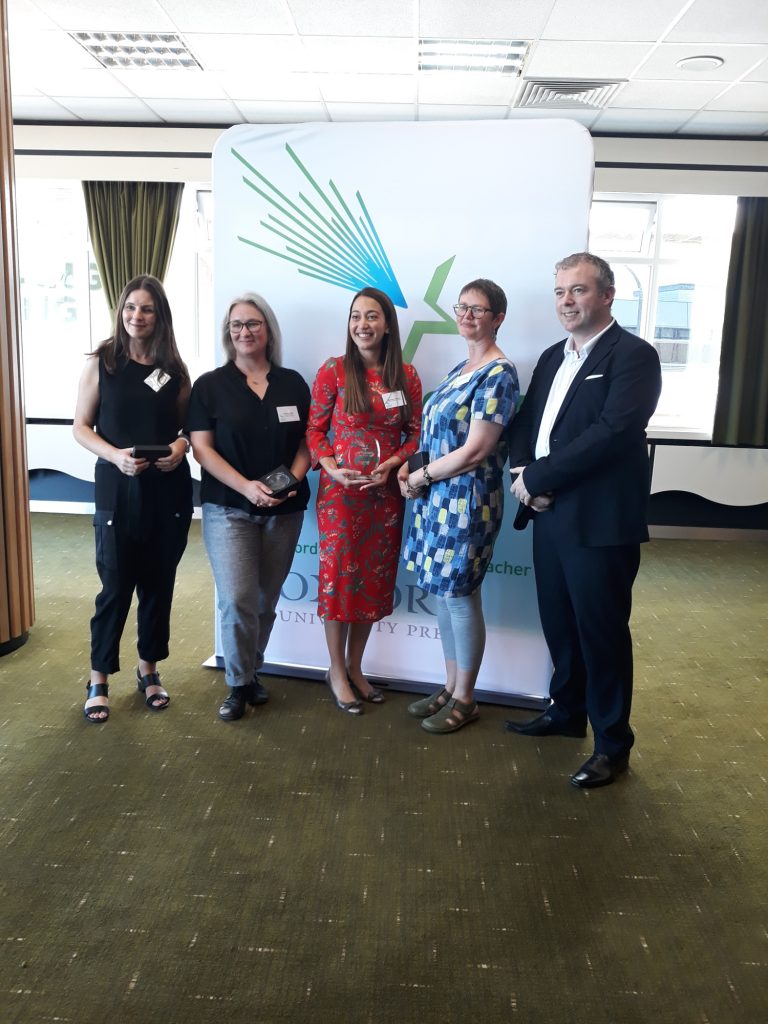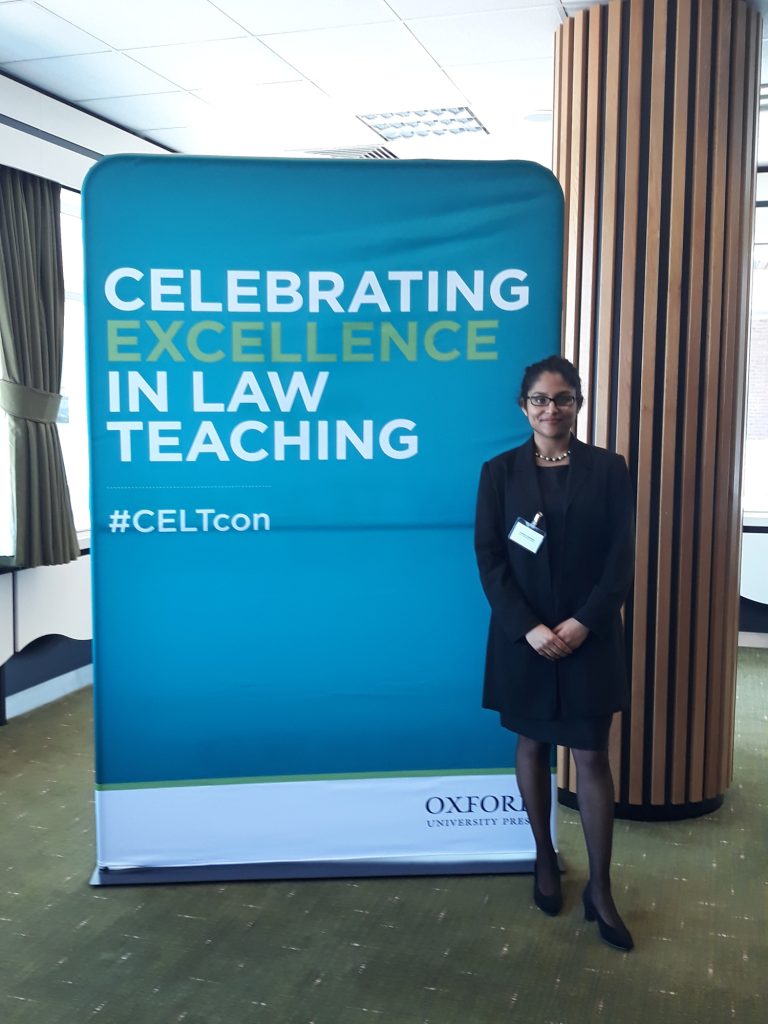CELT Conference 2019: Let’s celebrate innovative lecturers!
On Thursday 27 June, in the Gold Cup Room at Cheltenham Racecourse, delegates, including lecturers, legal professionals and students, attended the annual CELT (Celebrating Excellence in Law Teaching) conference. The event involved frank discussions on topics of successful transition, legal technology in teaching and practical teaching and (my favourite part!) celebrated the Law Teacher of the Year candidates, where City’s Sabrina Germain won the award.
Meet the Law Teacher of the Year candidates:
- Neil Allen, University of Manchester
- Sabrina Germain, City, University of London
- Jane Bryan, University of Warwick
- Victoria Ridler, Birkbeck, University of London
- Lucy Yeatman, University of Liverpool
You can read more about these awesome teachers’ profiles on the OUP website.

The judges for this year’s Law Teacher of the Year:
- Andreas Philippopoulos-Mihalopoulos, University of Westminster
- Alison Bone, University of Brighton
- Dawn Watkins, University of Leicester
- Tom Young, OUP
Highlights from the panel sessions with the candidates:
- From the first class, Sabrina tries to understand each student’s background and caters to all voices by using an anonymous survey. The reason for this is some areas of medical law are sensitive and inherent bias and prejudice will influence students’ analyses. Sabrina then helps students recognise and unpack their bias to allow for a more critical reflection of the law and policy.
- Neil Allen uses cases at the Supreme Court level to enhance students’ development in advocacy as there are no definitive answers to the issues litigated. To engage students and encourage active learning, Neil also uses technology, for example, the Slack app. This style of teaching acknowledges that teaching does not need to be contained within the four walls of a lecture hall or classroom.
- The relationship between subject inquiry and critical reflection. The ‘do you understand?’ question is often unhelpful, where students will automatically answer with a resounding ‘yes’. To combat this, Lucy Yeatman for example, asks open-ended questions to gauge whether students have properly understood the content and encourages students to ask even the most obvious questions.
Part I: Why does transition matter?

Imogen Moore from the University of Bristol explained the concept of transition where transition is not a single event, but a process and an effective transition includes changing status and liminality. It is a pertinent reminder that learning is also not contained within a length of time but is a continuous journey. Imogen explained that feelings of dislocation and disorientation are harboured among students as some academic institutions place too strong an emphasis on employability rather than the law school itself. Imogen cautioned with the use of phrases, including “thinking like a lawyer” as these phrases impede threshold concepts from transpiring. She suggested that law schools should continue to resist ‘spoon-feeding’ (a characteristic secondary schools employ), though it may not hurt to ‘hand-hold’.
The importance of confidence and community were explored by Verona Ni Drisceoil from the University of Sussex. Verona founded ‘My Voice’ for students who lack of confidence in advocacy and can practice their advocacy skills in small groups with teachers. The main objectives are to ensure students have a sense of community and to ease their anxiety. Students are given a diverse range of speeches with which to practice and this style of teaching changes the traditional method of teaching.
Part II: The Student View
After a refreshing coffee break, Part II of Transition commenced with the student panel. Craig Newbery-Jones from the University of Leeds chaired the student panel where a variety of views from the panel included issues of social transition, confidence and asking for help from lecturers and fellow students.
Legal Technology – More Please?
Lisa Webley from the University of Birmingham, Claire McGourlay from the University of Manchester and Anna Donovan from UCL featured on the panel. Anna contends that legal technology should not feature as a stand-alone subject. However, there are limitations for legal technology to become a characteristic in every module due to a lack of resources. The skills law firms and other employers look for are “creativity, design, consultancy, development, configuration, project management, analysis and ux (user experience)”. The question from the panel is if employers are changing their practices, why aren’t academics and how far should legal technology be implemented in legal education?
The Importance of Practical Teaching
Gemma Sweetman from the University of South Wales, Odette Hutchinson from Aston University and Scott Slorach from the University of York appeared on the panel. Gemma explained that practical teaching raises confidence and students’ aspirations through working and applying concepts in real life situations. Law students who volunteer at the USW Legal Clinic can demonstrate those skills and benefit more so than a purely theoretical approach. Also, Odette argues that ‘learning by doing’ provides students with a transformative experience.

And the Award goes to…
Last, but certainly not least, the Law Teacher of the Year Award presentation arrived where the judges paid tribute to each of the candidates. Lydia Bleasdale from the University of Leeds and outgoing Law Teacher of the Year presented the Award and announced Sabrina Germain as the winner. Congratulations to Sabrina on her well-deserved award and to the runners-up!
CELT was a truly inspiring event and I now have a newfound appreciation for the hard work that lecturers undertake. There are many facets to teaching which have been demonstrated from each of the panel sessions which makes teaching successful and most importantly, enjoyable.
